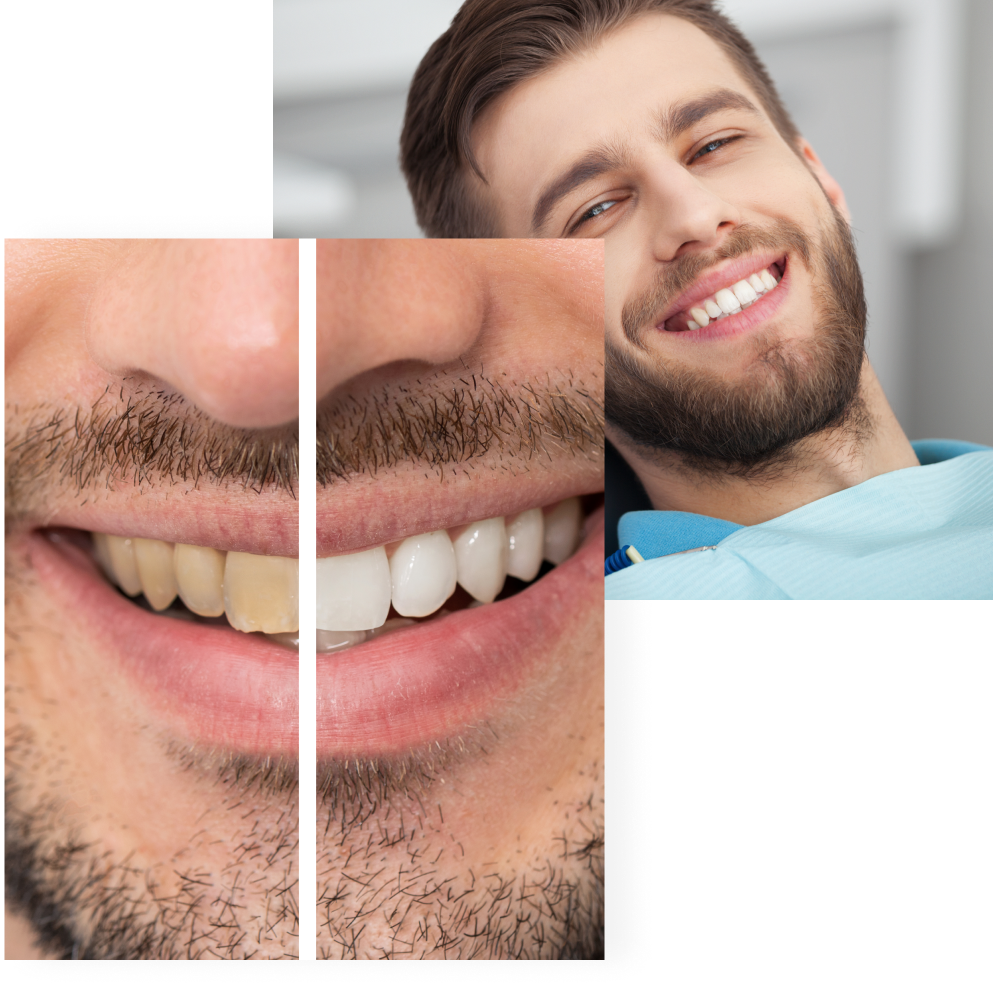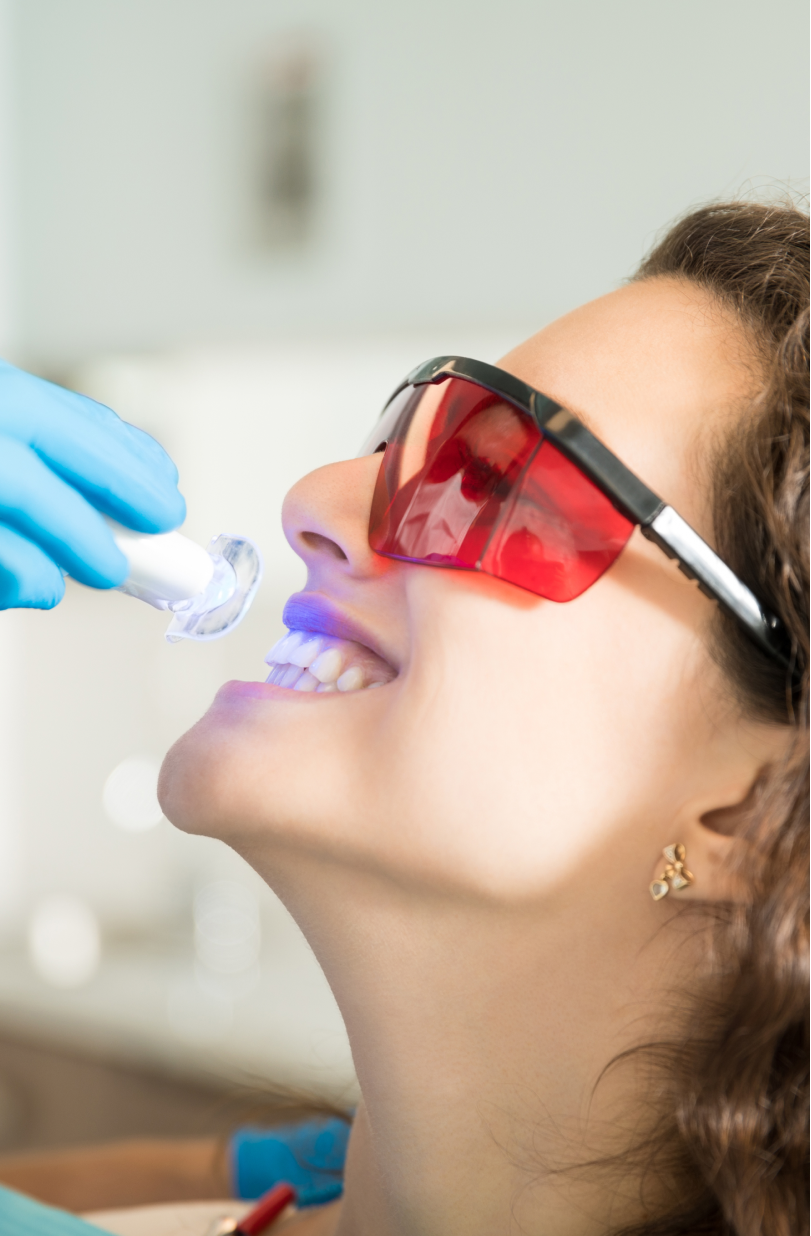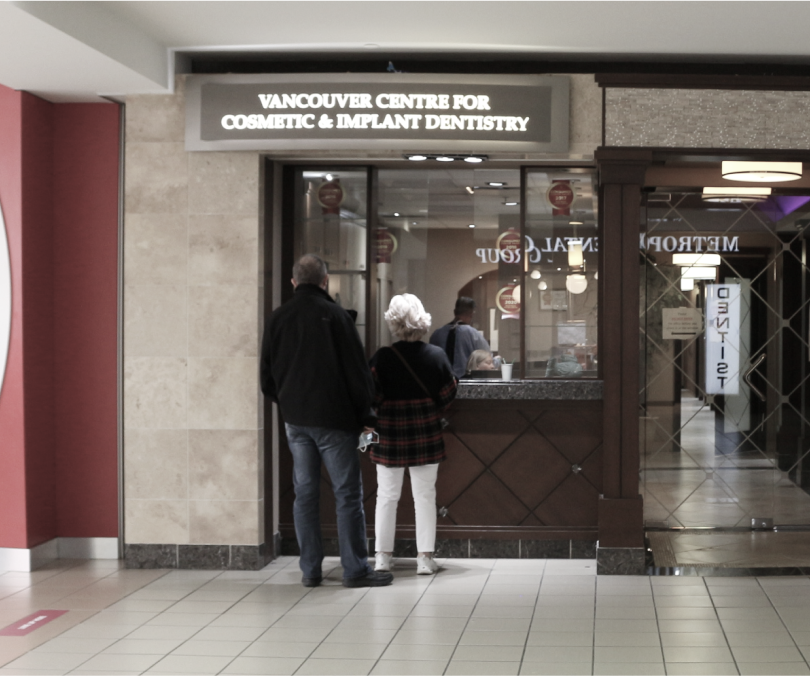Teeth Whitening
in Burnaby
Replace dark spots and yellowing with whitening up to 2x stronger than store kits. Start with a consultation!

Good News! VCCID has partnered with Dental Card. Get up to $25,000 in financing for dental treatments.


They typically have a lower concentration of peroxide in them — roughly 50% less whitening power than the professional, in-office whitening treatments at VCCID.
More power. Longer-lasting results. It’s up to 2x stronger than most store-bought kits.
All the convenience of store-bought kits, but with extra strength and custom-fitted trays.
Forget about fading results with whitening touch ups every time you come in for a checkup.
But it’s never just about brightness, because the best-looking smiles are created when everything fits together.
What’s “everything”? It’s things like skin tone, makeup style, hair and eye colour — they’re all part of choosing the right shade for your smile. So, with our 30+ years of experience, you don’t just get a brighter smile, you get the one that’s right for you.

Don’t just rely on numbers. Get a consultation and see a side-by-side comparison with your teeth.
Ready to get your teeth whitening in Burnaby? It only takes a few simple steps — here’s what to expect.
When you come in for an appointment, you’ll find out what results you can expect and how much your treatment will cost.
Sometimes your teeth and gums need a bit of care before you can get whitening. Health always comes first!
Knowing your goals is a must: it’s how we make sure your treatment results will match your expectations.
Maybe you have a specific treatment cost to stick to. Maybe you need results before a special day. We’ll find a way to make it work.
Who’s ready to get teeth whitening? You are — with a plan, budget, and clear expectations all laid out. Easy!

With results that last for as long as 12 months, whitening offers great value. The average cost for a clinical strength in-office treatment is $650, while at-home professional strength kits are typically around $400. Want a personalized estimate? Book a consultation with one of our Burnaby dentists!

It depends on the condition of your teeth, level of staining, and type of whitening used. In general, though, you won’t notice any decrease in brightness for 6 months to a year or more.
While the degree of difference will be tied to your smile’s original colour, you’ll almost certainly see a clear, noticeable difference in the brightness of your smile with professional teeth whitening.
Dental experts agree that teeth whitening is safe. The only thing to keep in mind is that your teeth and gums might feel more sensitive for a day or two after whitening.
Unfortunately, yes. As the inner layer of a tooth (dentin) gets thicker and darker over time, and the enamel above it wears down, the tooth can begin to look darker. Whitening starts to become less effective at this point, since the darker shading is from inside the tooth.
Metropolis at Metrotown
4800 Kingsway #359, Burnaby
BC V5H 4J2, Canada
MON: 8 AM – 5 PM
TUE: 7 AM – 5 PM
WED: 9 AM – 8 PM
THUR: 7 AM – 7 PM
FRI: 8 AM – 5 PM
SAT: 8 AM – 4 PM
*Closed statutory holidays
Subscribe to our email to get updates from the clinic and the latest content we publish
Internet Marketing by ElementIQ